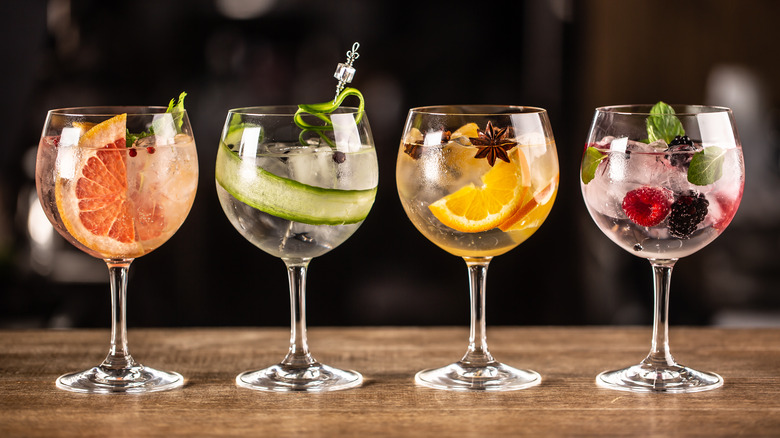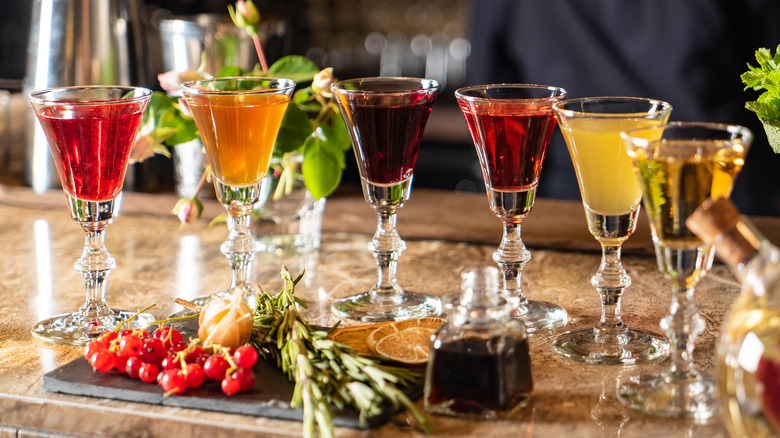Why You Need To Carefully Consider Bitters When Batching Cocktails
No matter what season it is, it's always a great time to play host. But as fun and rewarding as it is to gather everyone you love under one roof, hosting also comes with its stresses and its last-minute scrambles. That's why any good host is always on the lookout for ways to plan ahead and save time so that the day-of events go as smoothly as possible.
There's one thing you can be sure of when it comes to a party: The guests will likely show up wanting a drink. Luckily, there's a way to greet your guests with a fun or festive adult beverage that doesn't involve you retrieving or hand-making every request: batched cocktails. It's the perfect make-ahead item that will keep your guests happy and make your life way easier, all in one fell swoop.
If you're batching a cocktail with bitters in it, whether it's an Old Fashioned, a Negroni, or a seasonal concoction like an apple cider (or watermelon!) cocktail, there's one important thing to keep in mind to make sure the batch comes out perfectly balanced.
What are cocktail bitters, anyway?
There are lots of different types of bitters that you can add to your cocktails, but they all play essentially the same role -– and it's an important one. Bitters are alcohol infused with all different kinds of aromatics and botanicals, from herbs and spices to fruits and even tree bark (per A Couple Cooks). You may not even realize you're sipping on them, but they're those strong, unique finishers that really seal the deal on a cocktail's distinct flavor.
Only a few dashes, if that, are necessary because these tiny bottles pack a big punch. Some are spicy and bitter, like Angostura bitters, which are used in cocktails like Old Fashioneds, Manhattans, and Pisco Sours. Others have a citrusy, zesty flavor like orange bitters, which you'll find in cocktails like Pegu Clubs, Casanovas, and Negronis. And some are a little minty and sweet like Peychaud's bitters, which are used in the classic Sazerac cocktail.
Less is more: cut down on the bitters
In most cases when you batch a cocktail, you can simply increase the amount of each ingredient, keeping their overall proportions the same. But bitters are different -– if you multiply the original proportion like everything else, your cocktail might end up undrinkable.
That's because, as Cocktail Contessa explains, the longer bitters sit in the cocktail, the more potent and overpowering they'll become. So if you're including them in a batched cocktail that you make ahead of time, you'll need to cut down on the proportion to account for the time spent stewing with the other ingredients -– because once you've over-bittered a cocktail, there's not much you can do to un-bitter it.
Cocktail Contessa recommends cutting the original proportion in half for your batched cocktail, and from there you can always add a few more dashes to taste. An alternative if you want to play it safe is to simply omit the bitters when you make the batch, and instead leave them out for your guests to sprinkle into their glasses once they pour their cocktail.


